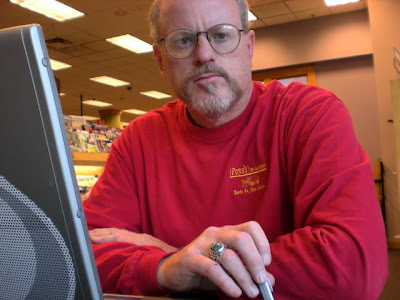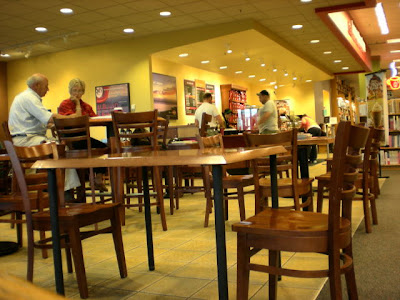The Sandia National Laboratories Technical Library is having a minor crisis, and it’s not alone. All across the world, research and technical libraries are closing the books on real books.
With the Internet and technological innovation leading the way, libraries are turning their backs on books, tossing them aside for digital versions that are accessible online. The Sandia National Laboratories Technical Library announced this month that they are placing the content of their library entirely online, and closing the door on the thousands of volumes of real books housed in their library.
Researchers at the Lab are understandably upset. While they are using their desktops to supplement their research, many of the technicians like browsing the library shelves for resources and enjoy studying an actual text. Some of them hate the idea of not having access to a traditional “brick and mortar” library with hardcover books.
Much of the ballyhoo is a response to the Library Without Walls Project, which is an international movement to place research and technical materials online for easy access from researchers around the world. The basic idea seems to be, “Let’s put all of the content of our books and journals online so we can easily access them at home, or at our labs and offices, from anywhere in the world.”
This all sounds great and is inevitable. But here’s the rub: what happens to books and traditional libraries? Will the local library, college library, all libraries everywhere eventually close their doors? Is there any value in holding a real book in your hands? Do we need to spend millions of dollars storing hardcover books when we can digitize content and make it available to anyone anywhere?
I’m reminded of two television shows, both from the area of science fiction, that deal with this issue. Interestingly, both of these television shows occurred in the 1960s, when the Internet and desktop computers were infants in imagination and practice.
The first episode I recall first aired in late 1959, was from the series Twilight Zone and titled

“Time Enough at Last”, and starred Burgess Meredith as a bank teller with poor eyesight. Mr. Henry Bemis wore these incredibly thick glasses. He loved books. He cared for them like children. And when an atomic bomb blast destroyed his city, he wept over the destruction of his beloved library. But the books survived. He carefully stacked them on the front steps of the library, which was a heap of crushed stone. He’s was thrilled to still have his books, with all the time in the world to read them. Then, tragically, at the end of the episode, he breaks his glasses. He’s now faced with a future surrounded by his beloved books, but he can’t read them. The last scene of him holding his books abreast in one hand, and his broken spectacles in the other, will always stay with me.
But I a love books.
The second episode comes from Star Trek. Titled “Court Martial” and first broadcast in 1967, the episode deals directly with the issue: the value of real books and human interaction versus the technological and digitization of content on computers. Captain Kirk is accused of a crime that ends in the death of a colleague, with evidence primarily being digital content on a computer. His attorney (played by Elisha Cook, Jr.), an old salt who loves books and hates technology, fights to save Kirk in court. His speech before the judge speaks directly to us: computers can lie. He passionately argues before the judge that computers and technology are destroying the reality of a world that was once real, a world with physical and emotional bonds that connect us as

human beings. Computers are nothing more than circuit boards, chips, mechanical devices, bits and bytes of information that are not real, they are imitations of reality. The episode ends, naturally, with Captain Kirk acquitted after his pal Spock discovers the computer was intentionally reformatted and unreliable, and the person who supposedly died was in fact still alive and was behind the whole frame job. I’ll always remember the passionate speech of Kirk’s attorney (badly overacted I’ll admit), and the picture of him holding a stack of books in his hand as he delivered it.
So, the issue comes down to this: is there any value in a real book, a book with pages that you touch, smell, turn, spill coffee on, crease, bookmark. When I sit out by the pool, or snuggle up near a fireplace, or slumber in bed at night, or sit at Starbucks drinking a latte, and want to read a good book, I don’t want to, read a computer screen.
But I’m a lover of books.
I will always prefer holding print and ink in my hands. I will never give up the hope that books will remain, real books. And God help us the day that libraries around the world become a thing of the past, heaps of ruble destroyed not by an atomic bomb, but by man’s foolishness.
 I'm sitting in a Border's Bookstore coffee shop, looking out the window at some beautiful mountains, and not getting much work done. My plan is to spend the weekend here, writing. It's a great store, located near a very nice mall east of downtown.
I'm sitting in a Border's Bookstore coffee shop, looking out the window at some beautiful mountains, and not getting much work done. My plan is to spend the weekend here, writing. It's a great store, located near a very nice mall east of downtown.


















